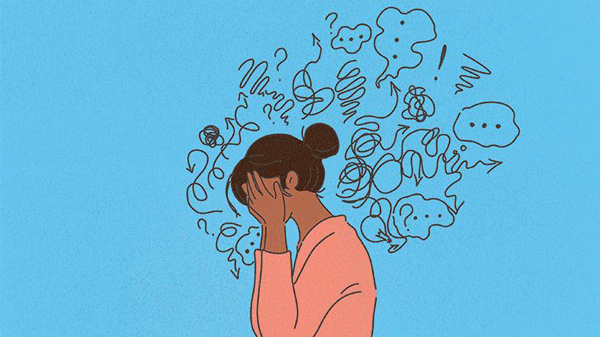
AS a teen, it is common and almost expected for you to feel sad, drained, frustrated, just generally emotional but there is a difference between these general emotions you are put through growing up and depression.
Approximately 20% of teens will have dealt with depression by the time they are adults. This is a problem millions deal with and there are signs that can help you recognise if you or a friend or family member are struggling with this disorder.
Depression isn’t just being sad all the time. It is something that affects you emotionally, physically, mentally. Depression is defined by kidshealth.org as strong mood involving sadness, discouragement, despair or hopelessness that lasts for weeks months or longer. It can show itself in different ways for every person, with lists of symptoms people may be suffering from.
Being aware of the signs of depression is the first way to work through this dark time in your, or your friend’s life. Emotionally, you may be feeling negative and low for an extended period of time, fighting with sadness, feeling discouraged, defeated, sad, hopeless, helpless, alone, guilty, unworthy, rejected, unloved or many other emotions.
These feelings can be all felt or just some of them. Depression effects people in different ways, as some people may be very emotionally impacted while others could have a stronger set of physical or mental effects.
Depression can lead to strong negative or critical thoughts about your self and life. Making you believe that things will never get better, that your problems are too big to solve, that nothing and no one can help you, that nothing matters.
These thoughts can swirl around your head and take over your thoughts, even though they are not true.
These exhausting thoughts and feelings can effect your concentration, motivation and energy. You will feel drained, tired and exhausted, feel as if everything now takes additional effort than before. It can effect your schoolwork, making it hard to complete assignments, pay attention in class, remember lessons. It can make it difficult to focus on people and what they have to say.
- Chamisa under fire over US$120K donation
- Mavhunga puts DeMbare into Chibuku quarterfinals
- Pension funds bet on Cabora Bassa oilfields
- Councils defy govt fire tender directive
Keep Reading
Physically depression can cause you to feel uncomfortable in your own skin, upsetting your stomach, causing loss of appetite. Some people lose or gain weight while fighting with depression.
Dealing with all this can cause headaches and often sleeping disorders, either lying in bed all day with no energy to get up, or having so many thoughts in your head that it can be difficult to fall asleep.
The signs and symptoms can be very difficult to tease through, but regardless of the combination of symptoms that affects each person, one thing that is common through depression is a social withdrawal that some people put themselves through. This process of separating yourself from friends and family or pulling away from activities that they previously enjoyed.
This process often leads to the person feeling more alone and isolated than before, often making them feel worse about their situation.
Dealing with this long list of symptoms is something that is easier than it seems. But depression is something you need help with, it’s not like a cold where you can wait it out.
Often waiting it out and not seeking help makes things worse, as you are constantly thinking about things and are often building on the negative effects of the disorder.
For as long as the list of symptoms is there, depression remains in force.
— elunanetwork











